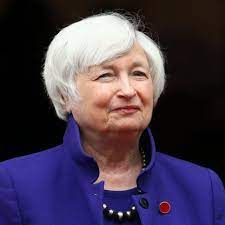
WASHINGTON (Reuters) – Treasury Secretary Janet Yellen said on Thursday the United States was looking at ways to strengthen its sanctions against Iran, but acknowledged the sanctions had not resulted in the behavioral or policy changes Washington desires from Tehran.
This is from David Lander and Kanishka Singh, “Yellen: Iran’s Actions Not Impacted by Sanctions to the Extent US Would Like,” March 23, 2023.
Lander and Singh continue:
“Our sanctions on Iran have created real economic crisis in the country, and Iran is greatly suffering economically because of the sanctions … Has that forced a change in behavior? The answer is much less than we would ideally like,” Yellen told lawmakers in a hearing on Thursday.
Dave DeCamp writes:
History shows that sanctions do little to change the governments they target but always hurt ordinary people in the targeted country. For example, UN experts said last month that more Iranians are dying from thalassemia, a congenital blood disorder, due to Western sanctions that deprive them of specialized medicines and the ingredients to make them.
Despite the failed policy in Iran, Yellen said the US was looking for ways to strengthen the sanctions even more. The Biden administration has followed the Trump administration’s so-called “maximum pressure campaign” against Iran and has imposed a large number of new sanctions.
This is from Dave DeCamp, “Yellen Says US Sanctions Have Created a ‘Real Economic Crisis’ in Iran,” Antiwar.com, March 26, 2023.
DeCamp is right to state, “History shows that sanctions do little to change the governments they target but always hurt ordinary people in the targeted country.” That is the approximate bottom line of Kimberly Ann Elliott, Gary Clyde, Hufbauer, and Barbara Oegg, “Sanctions,” in David R. Henderson, ed., The Concise Encyclopedia of Economics. I’ve also written about sanctions here.

READER COMMENTS
David Seltzer
Mar 29 2023 at 2:11pm
James M. Buchanan and Anthony de Jasay explain Yellen’s confused statement.
Lance
Mar 29 2023 at 5:27pm
So the problem with the logic here is that:
1. In the recent past, sanctions did bring Iran to the negotiating table, which is how we got the JCPOA. (Which the Trump admin decided to rip up, making things very complicated for the Biden admin now that the Iranians have “reduced trust”.)
2. Just because sanctions at level A don’t give you the result you want doesn’t mean sanctions at level B won’t.
3. The economic pain is the whole point. Hurting “everyday Iranians” is not directly the goal, but damaging the Iranian economy such that the Iranian regime has fewer resources with which to pursue e.g. its nuclear program by targeting e.g. its oil sector is going to have broad effects. Inasmuch as we can’t compel the Iranians to change their behavior, the consolation prize is that they have less rials to pursue those objectives and they face pressure for having a poor economy (for the record, the Iranians are also highly talented at mismanaging their economy even without the effects of sanctions).
Jon Murphy
Mar 29 2023 at 6:03pm
To your point 1: It’s not entirely true that previous sanctions worked with Iran. They often ignored whatever it was they agreed to. And besides, these sanctions aren’t working.
To your point 2: Yes, that is possible, but you need evidence to support the claim. Yallen’s statement leads us to doubt that more sanctions will work.
To your point 3: If sanctions reduced the resources avalible to the Iranian government, then perhaps your point would hold. But, as Yellen is noting, that is not the case.
David Henderson
Mar 29 2023 at 11:56pm
Actually, Jon, they didn’t ignore what they agreed to. They kept their agreement until Trump ripped it up.
Jose Pablo
Apr 1 2023 at 6:58pm
the Iranian regime has fewer resources with which to pursue e.g. its nuclear program
The North Korean regime has very few resources … and yet, enough to pursue a vigorous nuclear problem.
One of the main problems of nuclear programs is that they are very cheap … particularly when compare with, for instance, “social security programs” … these are the really expensives ones! You can afford a lot of nukes if you scrap those.
Mark Bahner
Mar 31 2023 at 10:38pm
Shades of Madeleine Albright in 1996, regarding Iraq. 🙁
Comments are closed.